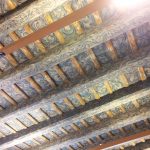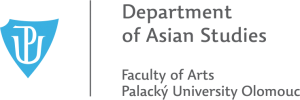Thorsten Traulsen (Bochum)
15 February 2019
The Korean quest for national identity within in the framework of imported Western ideologies starting at the very end of the 19th century put emphasis on the Hangul script from early on. Its sophisticated origin in efforts by King Sejong and his fellow scholars as well as its (almost) alphabetic character – rendering it closest to the now prestigious concept of an ‘efficient alphabet for a strong nation’ among all living scripts of the world not related to the Roman alphabet – made it only logical to praise Hangul’s cultural value and importance to this quest. In addition, Hangul served as the visual image of the Korean language, in particular when its existence was endangered at the end of the Colonial period (1910–45).
The roots of these attitude towards Hangul proved strong and script nationalism remained a visible feature of cultural life along the 20th century. Therein we find different strands resorting to different attitudes within nationalistic thinking and its linkage to evolutionism (as another leading ideology of the 19th century):
1) A ‘progressive’ sense of mission: Hangul as the ‘most splendid alphabet in the world’ has the potential to spread on a global scale and makes it easily possible to give writing to yet unwritten languages. Furthermore, it is apt to adapt to necessary changes within a changing environment with its ‘form following function’.
2) A ‘regressive’ sense of ancient roots: the magnitude of a nation as well as its cultural treasures is attested in its outstandingly long – in Korea we hear of 5.000 years! – of history.
3) A ‘restorative’ sense of nostalgia: a certain time in one’s own history is defined as its classical period and cultural climax and serves as a paragon of better times.
As will be shown, these strands of script nationalism can be found in different and overlapping groups of social agents – mainly intellectuals and politicians – in both countries of the peninsula.
Thorsten TRAULSEN began his studies of Korean Studies, Japanese Linguistics and General Linguistics in 1990, pursuing them mostly at Ruhr University Bochum (RUB, Germany) with several spells at universities in Seoul. In 2008, he received his Ph.D. from the University of Hamburg with a thesis on the phonological and lexicological foundation for internal reconstruction in Middle Korean. Ever since, his research focuses on the cultural implications of matters surrounding Korean language and script. Both at Ruhr University Bochum and at the University of Hamburg he teaches regularly on a variety of subjects, comprising Middle Korean, Old Korean, Korean history and society, as well as Korean literature. He is also a translator of Korean contemporary literature and serves, since 2005, as co-editor for the biannual journal Hefte für ostasiatische Literatur (“Journal for East Asian Literature”).


